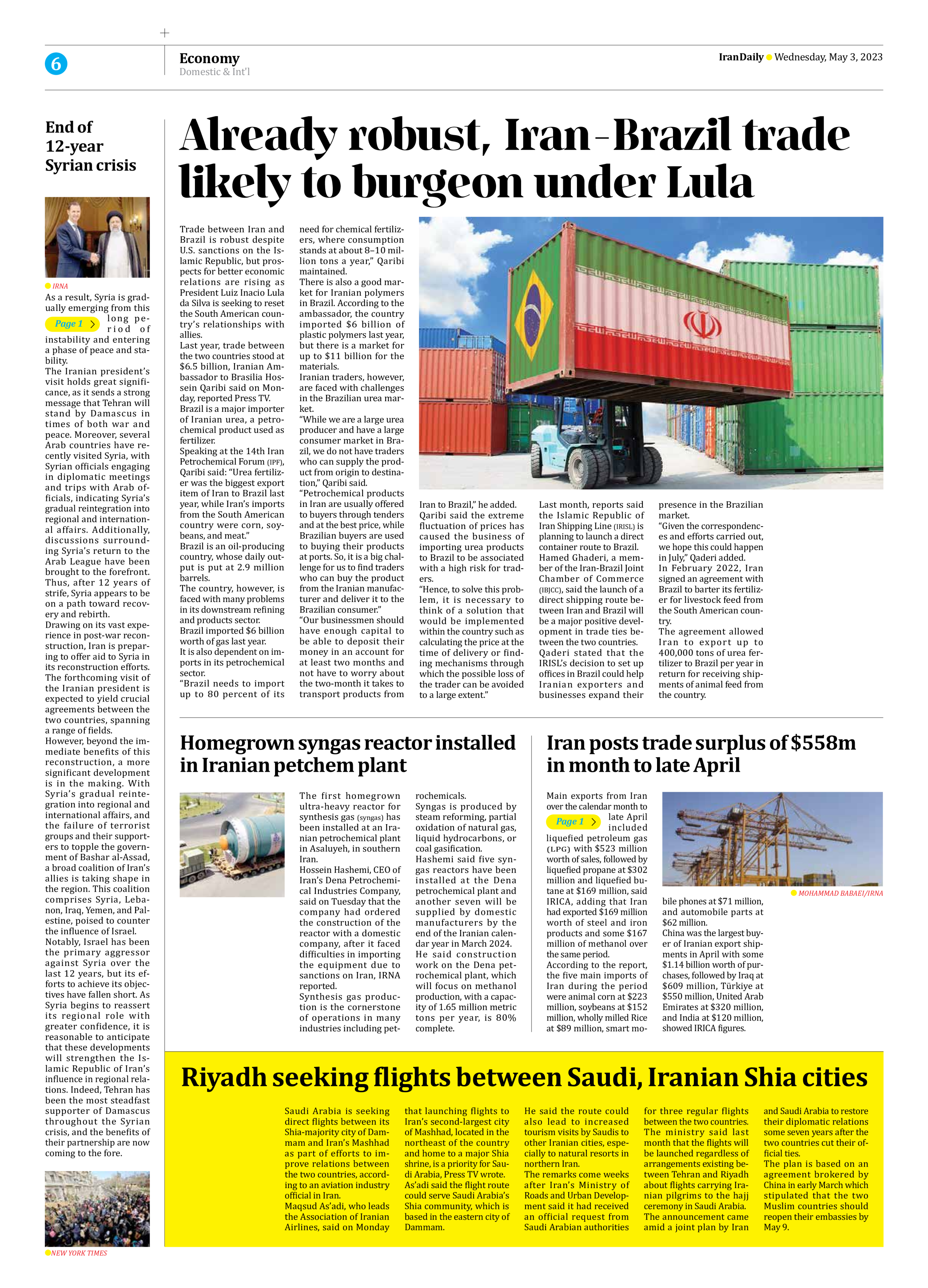
Already robust, Iran-Brazil trade likely to burgeon under Lula
Trade between Iran and Brazil is robust despite U.S. sanctions on the Islamic Republic, but prospects for better economic relations are rising as President Luiz Inacio Lula da Silva is seeking to reset the South American country’s relationships with allies.
Last year, trade between the two countries stood at $6.5 billion, Iranian Ambassador to Brasilia Hossein Qaribi said on Monday, reported Press TV.
Brazil is a major importer of Iranian urea, a petrochemical product used as fertilizer.
Speaking at the 14th Iran Petrochemical Forum (IPF), Qaribi said: “Urea fertilizer was the biggest export item of Iran to Brazil last year, while Iran’s imports from the South American country were corn, soybeans, and meat.”
Brazil is an oil-producing country, whose daily output is put at 2.9 million barrels.
The country, however, is faced with many problems in its downstream refining and products sector.
Brazil imported $6 billion worth of gas last year.
It is also dependent on imports in its petrochemical sector.
“Brazil needs to import up to 80 percent of its need for chemical fertilizers, where consumption stands at about 8–10 million tons a year,” Qaribi maintained.
There is also a good market for Iranian polymers in Brazil. According to the ambassador, the country imported $6 billion of plastic polymers last year, but there is a market for up to $11 billion for the materials.
Iranian traders, however, are faced with challenges in the Brazilian urea market.
“While we are a large urea producer and have a large consumer market in Brazil, we do not have traders who can supply the product from origin to destination,” Qaribi said.
“Petrochemical products in Iran are usually offered to buyers through tenders and at the best price, while Brazilian buyers are used to buying their products at ports. So, it is a big challenge for us to find traders who can buy the product from the Iranian manufacturer and deliver it to the Brazilian consumer.”
“Our businessmen should have enough capital to be able to deposit their money in an account for at least two months and not have to worry about the two-month it takes to transport products from Iran to Brazil,” he added.
Qaribi said the extreme fluctuation of prices has caused the business of importing urea products to Brazil to be associated with a high risk for traders.
“Hence, to solve this problem, it is necessary to think of a solution that would be implemented within the country such as calculating the price at the time of delivery or finding mechanisms through which the possible loss of the trader can be avoided to a large extent.”
Last month, reports said the Islamic Republic of Iran Shipping Line (IRISL) is planning to launch a direct container route to Brazil.
Hamed Ghaderi, a member of the Iran-Brazil Joint Chamber of Commerce (IBJCC), said the launch of a direct shipping route between Iran and Brazil will be a major positive development in trade ties between the two countries.
Qaderi stated that the IRISL’s decision to set up offices in Brazil could help Iranian exporters and businesses expand their presence in the Brazilian market.
“Given the correspondences and efforts carried out, we hope this could happen in July,” Qaderi added.
In February 2022, Iran signed an agreement with Brazil to barter its fertilizer for livestock feed from the South American country.
The agreement allowed Iran to export up to 400,000 tons of urea fertilizer to Brazil per year in return for receiving shipments of animal feed from the country.







